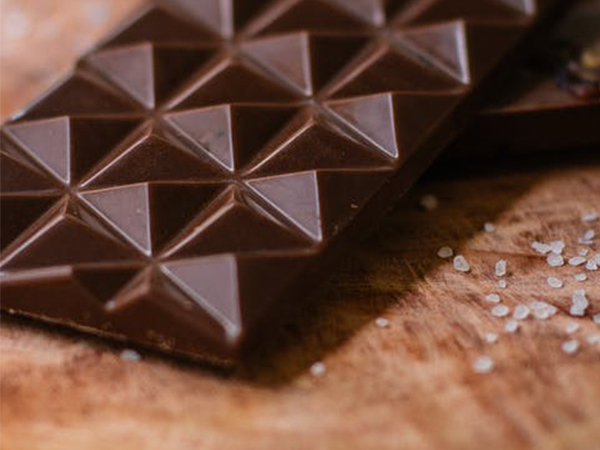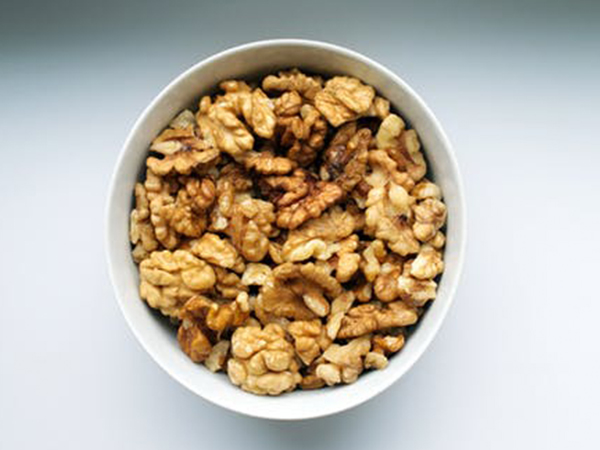Just In
- 2 hrs ago

- 3 hrs ago

- 12 hrs ago

- 12 hrs ago

Don't Miss
- Finance
 107% Returns: Tata's NBFC Doubles Investors Money, Rs 53,440 Profits On Rs 50K; Key Parameters To Buy/Sell
107% Returns: Tata's NBFC Doubles Investors Money, Rs 53,440 Profits On Rs 50K; Key Parameters To Buy/Sell - Sports
 KKR vs RR Memes: Fans Take Potshot at KKR for Conceding Match after Scoring 223; Praises Jos Buttler's Knock
KKR vs RR Memes: Fans Take Potshot at KKR for Conceding Match after Scoring 223; Praises Jos Buttler's Knock - Movies
 Bade Miyan Chote Miyan Vs Maidaan Box Office Collection Day 6: Akshay Kumar BEATS Ajay Devgn. Margin Is...
Bade Miyan Chote Miyan Vs Maidaan Box Office Collection Day 6: Akshay Kumar BEATS Ajay Devgn. Margin Is... - News
 UAE Weather Report: Floods Hit Dubai, 18 Dead; Govt. Shuts Schools, Colleges
UAE Weather Report: Floods Hit Dubai, 18 Dead; Govt. Shuts Schools, Colleges - Education
 UPSC Success Story: An IITian, A Government Job Holder at Railways, Quit the Job and Emerged as an IAS
UPSC Success Story: An IITian, A Government Job Holder at Railways, Quit the Job and Emerged as an IAS - Automobiles
 Jeep Compass Gets More Powerful 268.3bhp Turbo Petrol Engine – Check Out All The Details Here
Jeep Compass Gets More Powerful 268.3bhp Turbo Petrol Engine – Check Out All The Details Here - Technology
 Redmi Pad SE With 90Hz Display Launching on April 23 in India; Could Be Priced for Less Than Rs 20,000
Redmi Pad SE With 90Hz Display Launching on April 23 in India; Could Be Priced for Less Than Rs 20,000 - Travel
 From Coconut Breaking on Head to Men Dressing as Women: 12 Unique Indian Rituals Explored
From Coconut Breaking on Head to Men Dressing as Women: 12 Unique Indian Rituals Explored
11 Foods That Help Treat Erectile Dysfunction
Erectile dysfunction [ED] is usually said to increase with age. Nevertheless, an increasing number of instances have also been reported in the comparatively younger people [1] .

What Is Erectile Dysfunction?
Erectile dysfunction (ED) is defined as the inability to achieve or sustain an erection for a duration that would suffice for satisfactory sexual performance [2] .
Inability to maintain an erection can be due to many factors. While few and far between episodes of inability to maintain an erection are usually not a cause of concern from a medical point of view, it is when the inability is recurrent or persistent that the term erectile dysfunction is used. The condition should be affecting sexual activity for a minimum of 3 months before it can be attributed to ED [3] .

Diet And Its Effect On Erectile Dysfunction
ED is a common condition affecting men as they advance in age. Various environmental factors have been seen to influence the onset and progression of ED. Over the years, many studies have been conducted to analyse the effect of dietary factors on ED, with special focus on the direct as well as the indirect effect that certain micronutrients and macronutrients have on ED [4] .
While ED can be caused by neurogenic, psychogenic or endocrine causes as well, the most common reason for ED is vascular, that is, caused by a reduction in the blood supply to the penis [5] .
Diet, especially a Mediterranean diet, has been seen to have a positive effect on hypertension, metabolic syndrome, insulin resistance, and obesity. These conditions are regarded as indicators for microvascular disease, and by implication, also markers of a heightened risk of ED [5] .
A Mediterranean diet that consists of a high intake of virgin olive oil, fruits, whole grains, fish, nuts, vegetables, and fibres is commonly associated with lower risk and reduced severity of ED [5] .
Clinical trials have revealed that if a Mediterranean diet was followed by diabetic patients, there was a delay in the deterioration of sexual activity [5] .
The positive effect of a Mediterranean diet or MedDiet on erectile dysfunction is believed to be owing to certain factors - higher arginine levels that improve the nitric oxide activity, greater amount of antioxidants, and a heightened metabolism of glucose and lipid [5] .
A healthy lifestyle, supplemented with a low-fat diet, can help in the preservation of sexual function in men and also prevent the onset of ED.
Foods That Help Treat Erectile Dysfunction
Clinical research has revealed that the adoption of healthy diets can help in the prevention of ED [6] .
Some foods that have been found to be beneficial in the treatment and prevention of ED include the following:
1. Watermelon
Though mainly composed of water, watermelon also contains lycopene [7] . A carotenoid, lycopene is known for its antioxidant capacity and health benefits, especially for your skin, prostate, and heart.

2. Oysters
Well known as an integral part of Asian herbal medicine, oysters have been used as an aphrodisiac for managing ED [8] .
Oysters are believed to boost the testosterone levels, making them excellent for the reproductive health of men. Loaded with taurine, consumption of oysters promotes nerve transmission and cardiac health as well [8] .
3. Caffeine
As per the findings in the National Health and Nutrition Examination Survey [NHANES], the intake of caffeine - specifically an intake that amounted to consuming about 2 to 3 cups of coffee a day, or 170 to 375mg in a day - was seen to reduce ED [9] .
However, while this reduction in ED was observed among hypertensive or obese men, caffeine was not seen to have the same impact on diabetic men with ED [9] .
If you are not too keen on drinking coffee, you can opt for other drinks that contain caffeine, such as sports drinks, sodas, and teas.
4. Dark chocolate
Clinical research has revealed that a higher intake of flavonoids is connected to a reduction in the incidence of ED [10] .
Some studies have found that the total flavanol content in the commercial variety of dark chocolate could be as much as five times more than that found in milk chocolate [11] .

Flavanols help in lowering blood pressure and increasing the blood flow. As consumption of flavanols makes your body produce more nitric oxide, it has been seen to promote erections. This is the reason why many medications for ED contain flavanols.
5. Olive oil
A Mediterranean Diet that includes a high intake of virgin olive oil has been seen to positively influence sexual function in men by lowering the risk as well as the severity of ED [12] .
Containing good fat, consumption of virgin olive oil removes the bad cholesterol from your body. For most benefits, do make sure that the olive oil is virgin or extra-virgin.
6. Pomegranate juice
Clinical trials have established the efficacy of pomegranate juice in improving erections. Men with mild to moderate ED were included in the trial [13] .
7. Walnut
Walnuts are a rich source of arginine, folic acid, fibre, and vitamin E. The arginine in walnuts helps the body produce more nitric oxide, which in turn leads to better erections in men.

8. Peppers
Consumption of chilli peppers has been witnessed to lower cholesterol levels and blood pressure. Peppers can help in ED by relaxing the arteries, thereby increasing the flow of blood to the various organs, penis included.
In Uganda, traditional herbal remedies for the treatment of sexual impotence and ED often include Capsicum frutescens or red pepper [14] .
9. Fish
Clinical
trials
have
revealed
that
the
administration
of
omega-3
fatty
acids
could
have
a
positive
effect
on
the
erectile
dysfunction
[15]
.
Mackerel,
tuna,
sardines,
and
salmon
are
a
good
source
of
omega-3
fatty
acids.
Omega-3 fatty acids increase endothelial nitrous oxide production, decrease cardiac death, and reduce inflammatory markers. All these factors make omega-3 fatty acids quite critical for men who are diabetic, hypertensive, suffering from coronary artery disease, at high risk for serious cardiac events, or men with ED that are below 60 years in age [16] .
10. Greens
Green leafy vegetables, an integral part of the Mediterranean Diet and the Japanese Diet, have numerous health benefits owing to their high dietary nitrate content [17] .
Kale, packed with antioxidants, has a great nutritive value. For optimum results, kale should either be consumed raw or with a minimum amount of processing prior to consumption [such a blanching] [18] .
11. Garlic
Including
garlic
in
your
diet
can
remove
the
plaque
build-up
on
the
walls
of
your
arteries,
keeping
your
arteries
clear
and
your
blood
flow
unobstructed.
Laboratory
tests
conducted
on
diabetic
rats
have
revealed
that
S-Allyl
cysteine,
a
component
derived
from
garlic,
can
restore
erectile
function
[19]
.
Tips To Keep In Mind
Certain things to keep in mind are as follows:
1.
Try
maintaining
an
ideal
weight.
Being
obese
or
overweight
can
put
you
at
a
greater
risk
for
developing
diabetes
which
will
also
make
you
more
prone
to
developing
ED.
2.
Keep
your
cholesterol
and
blood
pressure
under
control.
High
blood
pressure
and
high
cholesterol
can
damage
blood
vessels
which
can
also
lead
to
the
reduced
blood
supply
to
the
penis,
causing
ED.
3.
Be
careful
of
what
you
eat.
Just
follow
a
simple
rule,
anything
not
good
for
your
heart
is
also
not
good
for
your
erection.
Avoid
fried
and
processed
foods.
4.
Stop
smoking.
Nicotine
consumption
leads
to
contraction
of
blood
vessels,
which
in
turn
reduces
blood
flow
to
the
penis.
5.
Avoid
steroids.
Steroids,
often
used
by
body
builders
and
athletes,
have
an
adverse
effect
on
the
testicles
and
their
ability
to
produce
testosterone.
6.
Exercise
regularly.
A
sedentary
lifestyle
has
been
linked
to
ED.
Swimming
and
running
have
a
positive
impact
on
sexual
health.
Conclusion
Always regarded as the quintessential symbol of a man's sexual powers and virility, the interest surrounding an erect penis and the various remedies for any dysfunction can hardly be overstated.
While usually affecting men as they get older, instances of ED have increasingly been seen in comparatively younger men as well. Better lifestyle choices can positively impact sexual function in men of all ages.
- [1] Rastrelli, G., & Maggi, M. (2017). Erectile dysfunction in fit and healthy young men: psychological or pathological?.Translational andrology and urology,6(1), 79–90.
- [2] Gurtner, K., Saltzman, A., Hebert, K., & Laborde, E. (2015). Erectile Dysfunction: A Review of Historical Treatments With a Focus on the Development of the Inflatable Penile Prosthesis.American journal of men's health,11(3), 479–486.
- [3] Bella, A. J., Lee, J. C., Carrier, S., Bénard, F., & Brock, G. B. (2015). 2015 CUA Practice guidelines for erectile dysfunction.Canadian Urological Association journal = Journal de l'Association des urologues du Canada,9(1-2), 23–29.
- [4] Zhang, W., Wang, X., Liu, Y., Tian, H., Flickinger, B., Empie, M. W., & Sun, S. Z. (2008). Effects of dietary flaxseed lignan extract on symptoms of benign prostatic hyperplasia.Journal of medicinal food,11(2), 207-214.
- [5] Di Francesco, S., & Tenaglia, R. L. (2017). Mediterranean diet and erectile dysfunction: a current perspective.Central European journal of urology,70(2), 185–187.
- [6] Esposito, K., Giugliano, F., De Sio, M., Carleo, D., Di Palo, C., D'armiento, M., & Giugliano, D. (2006). Dietary factors in erectile dysfunction.International journal of impotence research,18(4), 370.
- [7] Edwards, A. J., Vinyard, B. T., Wiley, E. R., Brown, E. D., Collins, J. K., Perkins-Veazie, P., ... & Clevidence, B. A. (2003). Consumption of watermelon juice increases plasma concentrations of lycopene and β-carotene in humans.The Journal of nutrition,133(4), 1043-1050.
- [8] Lim, P. H. (2017). Asian herbals and aphrodisiacs used for managing ED.Translational andrology and urology,6(2), 167.
- [9] Lopez, D. S., Wang, R., Tsilidis, K. K., Zhu, H., Daniel, C. R., Sinha, A., & Canfield, S. (2015). Role of caffeine intake on erectile dysfunction in US men: results from NHANES 2001-2004.PloS one,10(4), e0123547.
- [10] Cassidy, A., Franz, M., & Rimm, E. B. (2016). Dietary flavonoid intake and incidence of erectile dysfunction.The American journal of clinical nutrition,103(2), 534-541.
- [11] Katz, D. L., Doughty, K., & Ali, A. (2011). Cocoa and chocolate in human health and disease.Antioxidants & redox signaling,15(10), 2779-2811.
- [12] Di Francesco, S., & Tenaglia, R. L. (2017). Mediterranean diet and erectile dysfunction: a current perspective.Central European journal of urology,70(2), 185.
- [13] Forest, C. P., Padma-Nathan, H., & Liker, H. R. (2007). Efficacy and safety of pomegranate juice on improvement of erectile dysfunction in male patients with mild to moderate erectile dysfunction: a randomized, placebo-controlled, double-blind, crossover study.International journal of impotence research,19(6), 564.
- [14] Kamatenesi-Mugisha, M., & Oryem-Origa, H. (2005). Traditional herbal remedies used in the management of sexual impotence and erectile dysfunction in western Uganda.African Health Sciences,5(1), 40-49.
- [15] Shim, J. S., Kim, D. H., Bae, J. H., & Moon, D. G. (2016). Effects of omega-3 fatty acids on erectile dysfunction in a rat model of atherosclerosis-induced chronic pelvic ischemia.Journal of Korean medical science,31(4), 585-589.
- [16] Meldrum, D. R., Gambone, J. C., Morris, M. A., Esposito, K., Giugliano, D., & Ignarro, L. J. (2012). Lifestyle and metabolic approaches to maximizing erectile and vascular health.International journal of impotence research,24(2), 61.
- [17] Lidder, S., & Webb, A. J. (2013). Vascular effects of dietary nitrate (as found in green leafy vegetables and beetroot) via the nitrate‐nitrite‐nitric oxide pathway.British journal of clinical pharmacology,75(3), 677-696.
- [18] Sikora, E., & Bodziarczyk, I. (2012). Composition and antioxidant activity of kale (Brassica oleracea L. var. acephala) raw and cooked.Acta scientiarum polonorum Technologia alimentaria,11(3), 239-248.
- [19] Bayan, L., Koulivand, P. H., & Gorji, A. (2014). Garlic: a review of potential therapeutic effects.Avicenna journal of phytomedicine,4(1), 1.
-
 healthWhy Are Dopamine Boosting Foods Good For Your Overall Health? Check This List To Add It Naturally To Your Diet
healthWhy Are Dopamine Boosting Foods Good For Your Overall Health? Check This List To Add It Naturally To Your Diet -
 healthKeep Your Cooking Method Under Check Because These 9 Foods Lose Their Nutrition When Overcooked
healthKeep Your Cooking Method Under Check Because These 9 Foods Lose Their Nutrition When Overcooked -
 healthIf You Are Consuming These Foods, You Are Unknowingly Following An Anti Pollution Diet
healthIf You Are Consuming These Foods, You Are Unknowingly Following An Anti Pollution Diet -
 healthIndigenous Delicacies: 5 Rare Indian Wild Foods That Are So Healthy You Should Try It!
healthIndigenous Delicacies: 5 Rare Indian Wild Foods That Are So Healthy You Should Try It! -
 wellness5 Asthma-Friendly Foods: Breathe Easy With These Foods For Better Lung Health
wellness5 Asthma-Friendly Foods: Breathe Easy With These Foods For Better Lung Health -
 healthHeart-Healthy Tips For Garba: Foods To Avoid And Tips For Safe Celebrations
healthHeart-Healthy Tips For Garba: Foods To Avoid And Tips For Safe Celebrations -
 insyncMan Creates World’s Hottest Chilli Pepper, Pepper X: How Does It Feel To Eat It?
insyncMan Creates World’s Hottest Chilli Pepper, Pepper X: How Does It Feel To Eat It? -
 healthCan Eating These Foods Trigger Tumour Growth?
healthCan Eating These Foods Trigger Tumour Growth? -
 healthChew These 4 Foods For A Defined Jawline
healthChew These 4 Foods For A Defined Jawline -
 wellnessWorld Anaesthesia Day 2023: Foods With Anaesthesia-Like Properties
wellnessWorld Anaesthesia Day 2023: Foods With Anaesthesia-Like Properties -
 healthWorld Cancer Day 2024: Exploring Anti-Cancer Properties Of Indian Herbs And Spices Which Are Natural Healers
healthWorld Cancer Day 2024: Exploring Anti-Cancer Properties Of Indian Herbs And Spices Which Are Natural Healers -
 wellnessFoods You Can Eat When You Have Diarrhoea (Loose Motion)
wellnessFoods You Can Eat When You Have Diarrhoea (Loose Motion)


 Click it and Unblock the Notifications
Click it and Unblock the Notifications



